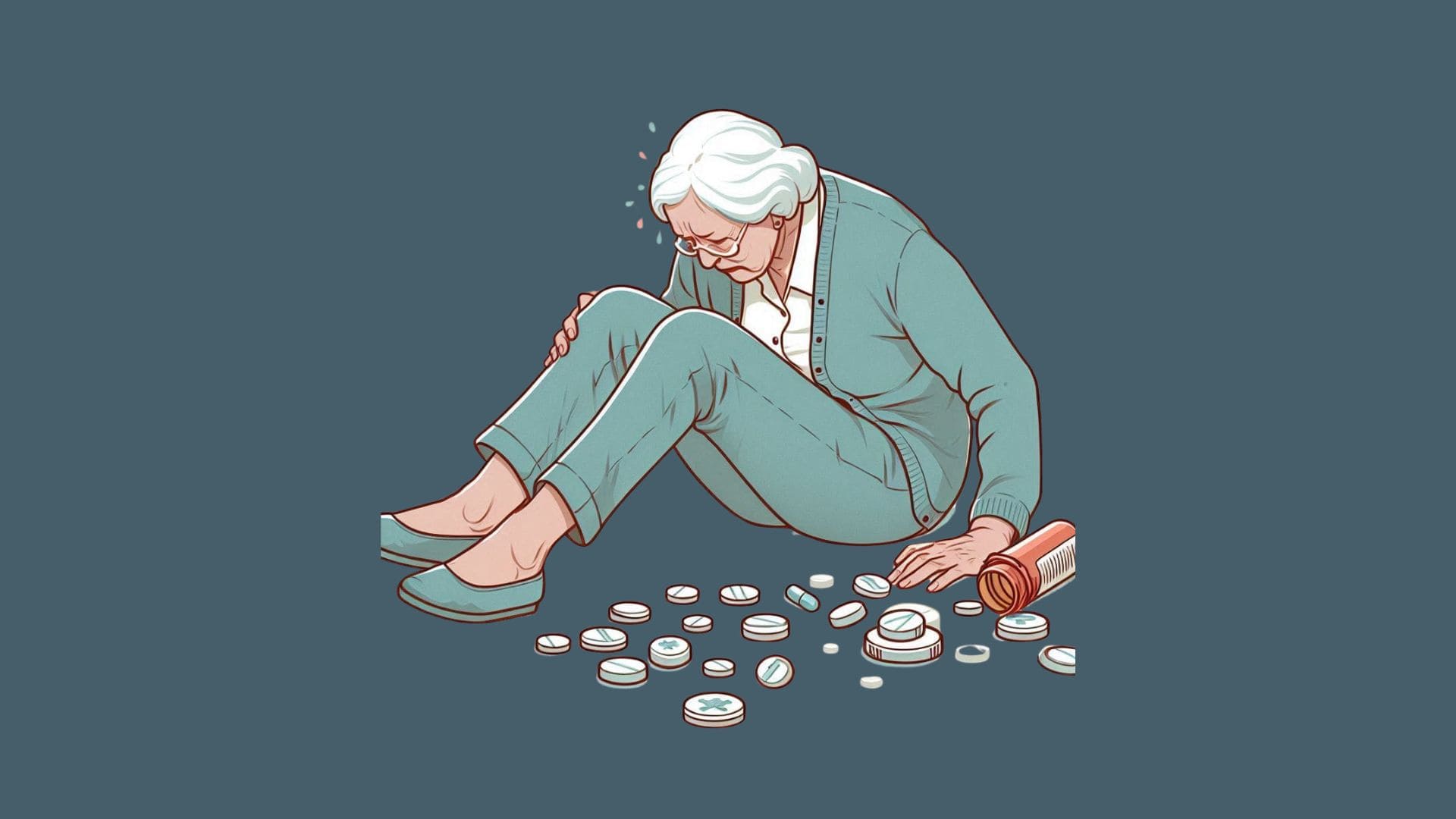For Healthcare Professionals:
Dizziness is one of the most common reasons for medical visits among older adults. To provide rapid symptom relief, vestibular sedatives such as meclizine or benzodiazepines are frequently prescribed. However, current guidelines strongly discourage routine use—especially in older patients—since these Medication increase fall risk and impair central compensation.
🔗 Marmor S et al., 2025. Vestibular Suppressant Utilization and Subsequent Falls Among Patients ≥65 Years With Dizziness in the United States. Journal of the American Geriatrics Society (J Am Geriatr Soc). PMID: 39902815
Study design:
- Database: Database: US insurance and Medicare data
- Zeitraum: Period: 2006–2015
- Population: 190,348 patients ≥65 years with dizziness
- Analyse: Analysis: Association between vestibular suppressant prescription and falls
Key results
- 32% received vestibular sedatives after diagnosis.
- 8% of these patients experienced a fall requiring medical care within 60 days.
- Adjusted for age, sex, and comorbidities:
HR 3.33 (95% CI 1.93–5.72, p < 0.0001)
→ Patients prescribed sedatives had more than a threefold increased fall risk.
Clinical Relevance
- Vestibular sedatives may reduce symptoms short term, but hinder long-term central compensation.
- Their use is appropriate only in acute vestibular crises —and then for hours to a few days at most.
- Guidelines recommend against routine prescribing, emphasizing targeted diagnostics and etiology-specific treatment.
- Particularly concerning: high use of benzodiazepines, well known for causing gait instability, sedation, and cognitive impairment.
Conclusion for Practice
This study underscores the importance of differentiated diagnosis in dizziness rather than reflexive prescription of vestibular sedatives. In older adults especially, inappropriate use can dramatically increase fall risk and delay recovery.
👉 Are you interested in a comprehensive further training in vestibular rehabilitation and evidence-based dizziness management?
Current further education opportunities can be found in the IVRT Course search.
For Patients – Easy to Understand
Dizziness & medication: Why some pills may increase fall risk
A new large US study shows:
Many older adults receive medicines for dizziness that dampen the balance system—so-called vestibular sedatives like meclizine or benzodiazepines. But these drugs can actually worsen unsteadiness and raise the risk of falls.
📄 Marmor S et al., 2025. Vestibular Suppressant Utilization and Subsequent Falls Among Patients ≥65 Years With Dizziness in the United States. Journal of the American Geriatrics Society (J Am Geriatr Soc). PMID: 39902815
Key findings
- 1 in 3 people aged 65+ with dizziness were prescribed vestibular sedatives.
- 8% of them fell within 60 days after prescription.
- The fall risk was more than three times higher compared with those not taking these drugs.
Conclusion
What does this mean for you?
- Such medications may help briefly in very severe acute dizziness.
- They are not intended for long-term use because they:
- further weaken the balance system,
- can cause drowsiness,
- increase fall risk.
What you can do
- Seek a second opinion—from your pharmacist or a specialist.
- If dizziness is not caused by medication:
- Targeted exercises and balance training are often highly effective and evidence-based.
🎯 Our IVRT®-certified dizziness and vestibular therapists, who can support you individually, can be found through our IVRT therapist search

